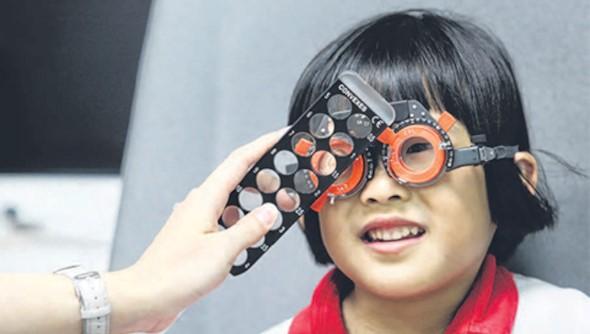
We collaborated with researchers at the Singapore Eye Research Institute (SERI) on several projects to implement computer-adaptive assessment into clinical research and care.
Led by Professor Ecosse L. Lamoureux and Dr Eva Fenwick, the research project's objective is to comprehensively assess the quality-of-life impact of eye diseases, and associated vision impairment, and the effectiveness of treatment modalities from the patients’ perspectives in clinical trials, as well as real-world clinical care. They have developed one vision-specific (the Impact of Vision Impairment [IVI-CAT]) and two eye-disease specific CATs (Diabetic Retinopathy [RetCAT] and Glaucoma [GlauCAT]), using Concerto, our online adaptive testing platform. They are currently developing CATs for two other ocular pathologies (Age-Related Macular Degeneration [MacCAT] and Myopia [MyoCAT]), and Diabetes [DiabCAT]. Their CATs contain between 3-12 QoL domains and 15-303 items. They are currently being implemented in eye hospitals in the USA and Singapore.
GlauCAT @ Massachussets Eye and Ear Hospital Glaucoma Clinics
We are collaborating with clinicians and researchers at Mass. Eye and Ear hospital to test the feasibility, acceptability and impact on clinical care of implementing 6 CATs measuring glaucoma-specific quality of life (“GlauCAT”) in glaucoma clinics. Run on Concerto, GlauCAT measures glaucoma-specific activity limitation, concerns, emotional well-being, mobility, ocular discomfort, and glaucoma management. Patients with glaucoma attending the clinic are administered GlauCAT on a tablet via Concerto’s secure online system and a report summarising the patient’s score out of 100, a visual interpretation of this score, the items of particular difficulty to the patient, and the patient’s score pattern over time is automatically generated by Concerto. Clinicians are provided with the report and use it to guide their discussion with the patient during the consultation. Referrals to allied health services, such as counselling and low vision rehabilitation, are triggered at the clinicians discretion based on the patient’s scores. Outcomes of this project include feasibility (establishing a feasible workflow; time taken to answer each test), satisfaction (patient and doctor), and number of referrals made to allied health services. Future work will focus on establishing direct integration between Concerto and electronic health records via API, and full-scale implementation of this new system within Mass. Eye and Ear glaucoma clinics.
IVI-CAT @ Singapore National Eye Centre
This collaborative project between the Psychometrics Centre, the Singapore Eye Research Institute (SERI) and the Integrated Health Information Systems (IHiS) aims to pilot test the implementation of two CAT tests measuring the impact of vision impairment on vision-specific functioning and emotional well-being (“IVI-CAT”) in the Cataract & Comprehensive Ophthalmology Department clinic at Singapore National Eye Centre (SNEC). Patients with cataracts answer the IVI-CAT using a tablet via Concerto’s secure online system during their pre- and post-operative visits. Their scores along with an interpretation (e.g. poor, moderate, good) are automatically and securely pushed from Concerto to the hospital’s electronic medical record system where doctors can view and discuss the IVI-CAT results during the consultation with their patients. The feasibility, acceptability and impact on clinical care of this new system will be assessed and future work aims to scale up the system throughout SNEC and other institutions within SingHealth.
